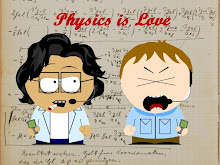me:
Hey there
Parijata:
hey you!
how's it going?
me:
I think I pissed off at least half of my HIPS class
Parijata:
oh? how did you manage that?
me:
I stated that any scientific claim has to be supported by a controlled experiment
and when my prof asked about things like Geophysics or Astronomy
I said that they are not really sciences
Parijata:
hahahahaha
ouch
what would you call them?
me:
well, a better question is why do we need to call them "scientists"?
I mean, "science" doesn't have any stake in truth, IMHO
especially considering the impossibility of knowledge a la Hume
but if I were to give them a name
"Natural Investigators"
Parijata:
well, hume is kind of full of shit, i wont go into it now, but im sure we will, a la popper
me:
hey, I like Hume
>:-I
Parijata:
i think science is the only thing with a stake in truth; what would you say has a stake in truth, then?
me:
I don't believe in truth
Parijata:
haha, okay
me:
kinda like Nietzsche
Parijata:
define truth
me:
that's the problem
what defines truth?
Parijata:
IMHO, correspondence to reality
me:
hmm...
assuming that there is an external reality, yes?
Parijata:
not necessarily, although i tend to
me:
so correspondence to reality would be like what?
synchronization of propositions to some criterion?
Parijata:
something like that, although predictive power is probably at best an indicator that we are probably on the right track
me:
hmm...
well, I think it seems you are defining truth as "consistency"
is that correct?
Parijata:
consistency... well, that is certainly a way to know that you have at least a vague idea of whats going on
me:
you are arguing that there is some sort of "essence" in truth beyond consistency?
Parijata:
what exactly do you mean by consistency?
me:
you are talking about "correspondence to reality"
Parijata:
i mean, i grant no metaphysical property to truth, if thats what you mean
me:
which implies that there are at least two sets
Parijata:
it's just what is
yeah i know
Parijata:
the set of what is, and the set of what we think there is... the former, which may or may not exist, is "truth"... the latter, which exists at least in some form in my head, is the correspondence i hope to attain... with no clue how real it actually is. again, if it's all an illusion, that is truth.
me:
I see
so... truth must be independent of the observer?
Parijata:
um, well, the truth is at a very minimum inclusive of the observer. i'm very reluctant to grant much to truth, but i do employ the scientific method of hypothesizing an external reality, and setting out to disprove that hypothesis
me:
hmm... so it seems more like a compromise... hmm
lol
I agree that science is possibly one of the more well-formulated investigations for "truths"
although these "truths" tend to be rather descriptive statements of causality...
in a natural world, that is
although, if we argue about social sciences, we can...
well
then our definition of science becomes a problem
Ah, I see
this is how social "sciences" can possibly be called science
because they are employing controlled empirical tests
Parijata:
hahahaha
yes
good times with social sci
me:
I mean, mathematical science works
sort of
mathematics is... empirical?
hold on
lemme think about this one
do you think mathematics is experiential?
I mean, it's external
but I don't know if it is necessarily experiential
I dunno
I still really really like Hume
but mathematics is a really weird area
because... the experience it provides is somewhat... inaccessible to human perception?
Parijata:
sure, hume is cool, but popper seems to defeat him
i think
the jury's still out in my mind, but when i dig that book out of storage, i'll let you know
me:
alrighty
but this issue of mathematics is really confusing
Parijata:
well, math is lies, but go ahead
me:
how exactly would we experience?
lol
Parijata:
what do you mean?
me:
how do you experience mathematical ideas?
of course, there are different schools
realists like Godel think that mathematics exist externally
intuitionists tend to think that mathematics is a human tool
Parijata:
well, godel believed in god
me:
I guess mathematics really tends to go out there...
Parijata:
minus 50 life points
me:
lol
so did most mathematicians
Parijata:
yeah, and math is lies
find me a perfect circle, anywhere
me:
I guess math is Platonic then
Parijata:
yep
therefore, lies. QED/
me:
Oh God
lol
that's too funny
but math is also empirical
somewhat
if you consider reductio ad absurdum a form of experiment
although...
don't you think it a little funny how we use math and logic, both rather "Platonic" tools, in determining and formulating empirical claims?
Parijata:
yep. it annoys the hell out of me.
i'm working on alternatives
this is why i should just be a corporate sellout. so i dont have to care
me:
wurd.
to hell with intellectualism
Parijata:
ramen
i mean, yay money
[end transcript]
Thursday, September 27, 2007
Subscribe to:
Post Comments (Atom)


No comments:
Post a Comment